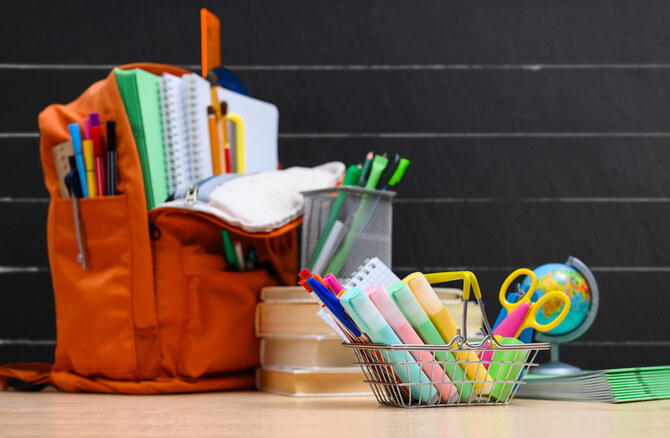RIYADH: Saudi Arabia’s point-of-sale transactions registered a weekly increase of 36.6 percent between Oct. 27 and Nov. 2, with the education sector leading the growth.
The Saudi Central Bank, also known as SAMA, recorded SR15.1 billion ($4.03 billion) in transactions over the seven-day period, with the education industry posting the highest sectoral increase at 79.3 percent to reach SR177.6 million.
This surge coincides with the start of the second semester on Nov. 17, similar to what was seen before the school year began in August.
SAMA figures showed that the clothing and footwear sector saw the second-largest rise, with a 63.7 percent jump to SR1.07 billion, reflecting a consistent trend in consumer spending during key academic periods.
This growth mirrored a similar pattern observed earlier in August this year, indicating a recurring trend in consumer spending within these two sectors.

Spending on telecommunication recorded the third largest surge, with a 51.9 percent positive change, reaching SR157.1 million.
Expenditure on food and beverages followed with an uptick of 48.1 percent, reaching SR2.5 billion, claiming the biggest share of this week’s POS transaction value.
Recreation and culture followed with a 40.9 percent surge, reaching SR296 million.
Restaurants and cafes accounted for the second-largest POS transaction value, with SR2.1 billion. Miscellaneous goods and services followed at SR1.8 billion.
Spending in the leading three categories accounted for 42.8 percent or SR6.4 billion of the week’s total value.
At 11.8 percent, the smallest increase occurred in hotel spending, boosting total payments to SR328.4 million. Expenditures on construction and building materials came second, surging 19.1 percent to SR386 million.

Geographically, Riyadh dominated POS transactions, representing 33.7 percent of the total, with expenses in the capital reaching SR5.11 billion — a 28.1 percent increase from the previous week.
Jeddah followed with a 27.7 percent surge to SR1.93 billion, and Dammam came in third at SR745.7 million, up 28.8 percent.
Hail experienced the most significant rise in spending, increasing 65.1 percent to SR280.1 million. Tabuk and Abha followed, with expenditure surging 55.9 percent and 43 percent to SR324.8 million and SR187.4 million, respectively.
Regarding the number of transactions, Hail recorded the highest increase at 34 percent, reaching 4.4 million transactions, followed by Tabuk with a 28.7 percent increase, achieving 5.3 million transactions.


































